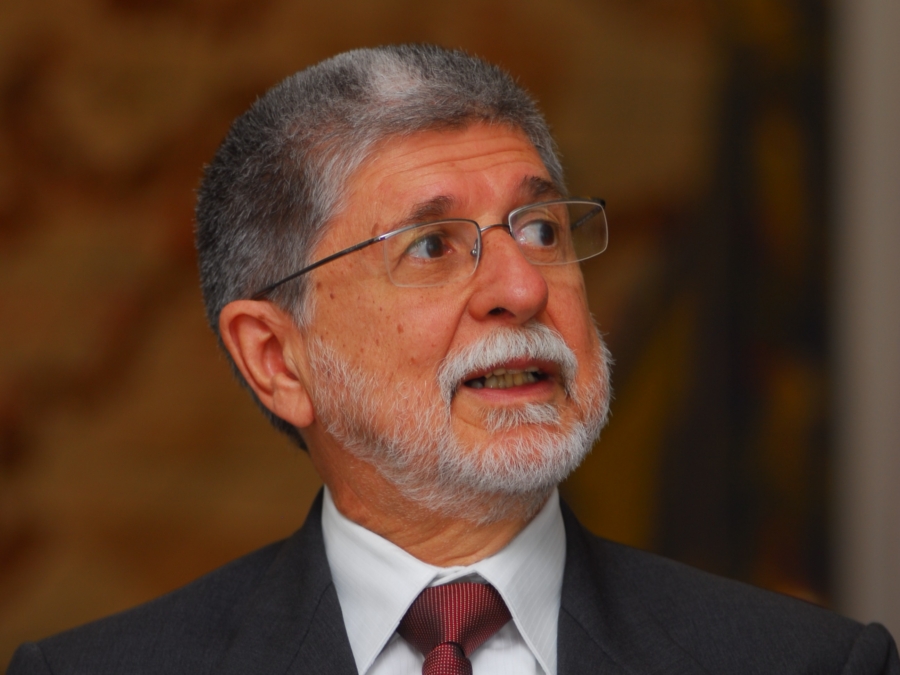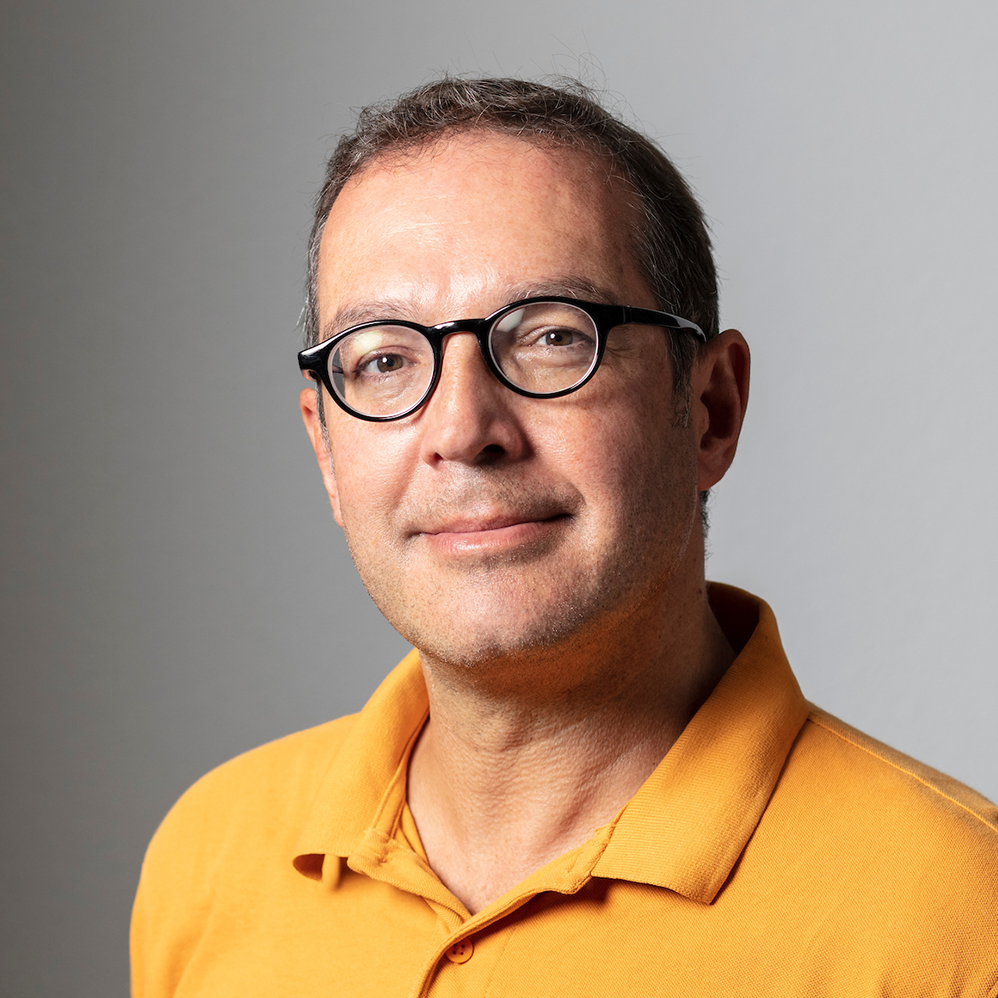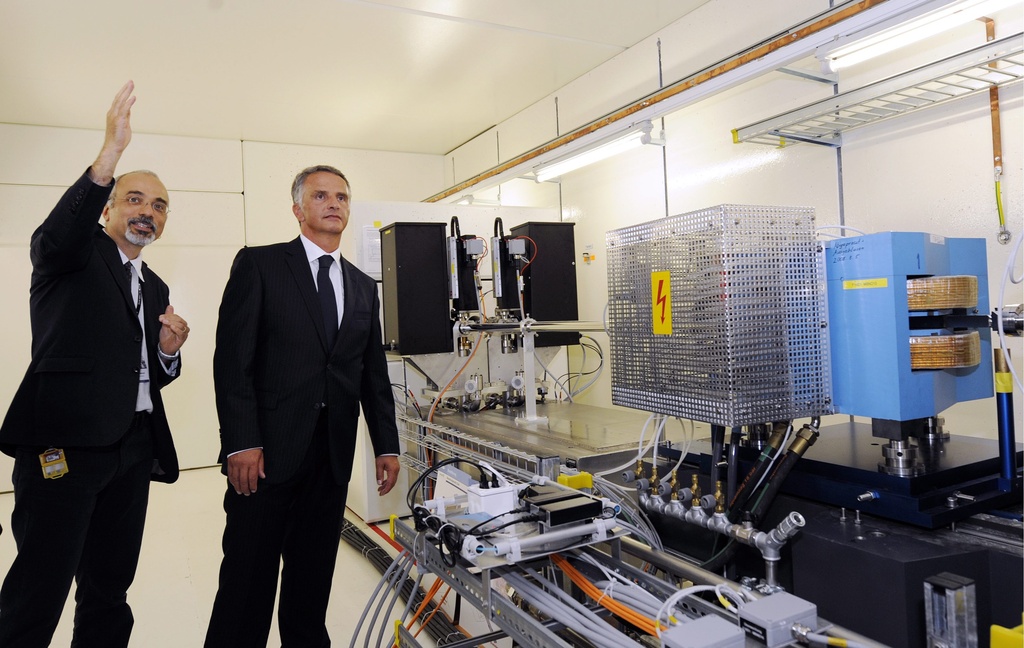“G20 plus Switzerland equals too much Europe”

In its efforts to join the Group of 20, Switzerland does not have Brazil’s support, says Brazilian Foreign Minister Celso Amorim.
Swiss membership in the international group of finance ministers and central bank governors would throw off the balance of regions represented, according to Amorim.
The G20 is made up of 20 major industrialised and developing nations, including Brazil. In an interview with swissinfo.ch, Amorim shares his views on free trade, blacklisted tax havens and other aspects of the relationship between Switzerland and Brazil.
swissinfo.ch: Swiss Interior Minister Didier Burkhalter was recently in Brazil along with 15 scientists. The focus of the visit was not only scientific cooperation but also Switzerland’s economic relationship with the BRIC countries of Brazil, Russia, India and China. How would you explain this new interest?
Celso Amorim: Our priority is a strategic partnership with the European Union (EU), which is substantiated by Europe’s great interest in Brazil.
Regarding Switzerland, we have also deepened our relationship. I regularly take part in the World Economic Forum (WEF) in Davos. It was an honour to welcome [Foreign Minister] Micheline Calmy-Rey and [Economics Minister] Doris Leuthard here in Brazil, and also to visit them in Switzerland.
In my view this is the most natural result of the productivity of our economy as well as that of our foreign policy…
For example, I had interesting discussions with Calmy-Rey about Iran and that was long before the recent agreement made with Turkey. And I’ve always had a good relationship with Leuthard, my colleague for economic negotiations.
swissinfo.ch: At a recent event organised by Switzerland’s Latin American Chamber of Commerce, many Swiss entrepreneurs noted that it was difficult to get a foothold in the Brazilian market for lack of a free trade agreement. Switzerland has 22 such deals outside the EU, four of which are with Latin American lands. When will the situation change?
C.A.: We have an agreement with Switzerland that works very well. However, it is not a free trade contract but rather an accord that supports economic and trade cooperation. This has even made it possible to establish a commission that has met several times and managed to solve some bilateral problems.
A free trade agreement would have to be negotiated with Mercosur, a customs union of which Brazil is a member. All members need to be able to bargain together. Here we have no exceptions. I believe that the current negotiations with the EU will show what type of negotiations we might engage in with Switzerland and the Efta [European Free Trade Association] countries.
Of course at first glance there is resistance on both sides. For finished products there will be some difficulty on the part of some members of Mercosur. On the other hand, there will surely be problems with agricultural products on the Swiss side. However, I don’t see an obstacle. You have to negotiate and come to an agreement that is attractive for both sides.
swissinfo.ch: How would you respond to the concerns of many Swiss firms – particularly within the pharmaceutical industry – regarding patent protection?
C.A.: Brazil certainly isn’t against patents. We do fight abusively high prices that have nothing to do with necessity or covering investments, and which lie outside some countries’ ability to pay.
swissinfo.ch: So Brazil insists on interpreting the protection of intellectual property freely?
C.A.: There will always be varying interpretations and the World Trade Organisation (WTO) in Geneva is responsible for that. In addition, we have successfully finished investment negotiations with a Swiss company: Novartis built its first Latin American vaccination factory in Goiania.
Such investments are welcome. Brazil doesn’t preach disregard for copyrights. Yet there are cases – for example, Aids – where the use of generic medication is fundamental. Brazil was one of the first countries to see a decline in Aids cases; this was possible thanks to generic medicine. The program, which was nearly 100 per cent government-funded, would never have been possible had we been required to buy patented medication. In many cases there were negotiations, also with Swiss firms, and it was possible to agree on a reasonable price. These companies continue to make deals with the Brazilian government.
I see these differences of opinion as normal. But we’re not going to stop making our ill citizens a priority if we can help it.
swissinfo.ch: Speaking of direct bilateral conflict, Brazil’s tax authorities decided to put Switzerland on its blacklist of tax havens …
C.A.: I believe that this problem has already been solved.
swissinfo.ch: But the resolution was only waived tentatively!
C.A.: That’s true, but at the moment there’s not a problem. It depends on how you look at it. You know that tax authorities around the world guard their competencies jealously.
We will find a solution in which we concentrate less on countries and more on economic activities. Such activities that enjoy tax advantages have to be compensated within the country to forestall unfair competition.
But Switzerland is not on a list of countries seen as tax havens. I’ve discussed that with both Leuthard and Calmy-Rey. We solved the problem within a week.
swissinfo.ch: Switzerland wants to join the G20 to help find solutions and prevent future financial crises. Would Brazil support this quest?
C.A.: Switzerland is already represented in several international groups that address financial problems. Many of these are even located in Switzerland, such as the Bank for International Settlements in Basel and the Committee for Finance Politics.
I must admit that in my opinion, Europe is already over-represented. We don’t have anything against Switzerland. If Switzerland could join the G20 without disturbing the balance and putting developing countries at a disadvantage, then fine. But this problem has to be solved within Europe.
Alexander Thoele in Brazil, swissinfo.ch (Translated from German by Susan Vogel-Misicka)
Brazil, Russia, India and China – the so-called BRIC countries – are high on the Swiss government’s foreign policy agenda.
The goal is to improve market access and investment protection for Swiss firms active in these lands.
These four countries have nearly doubled their share of the world market within the past decade.
swissinfo: Twice now, from 1991-1993 and 1999-2001, you were the Brazilian ambassador in Geneva. What are your personal impressions of Switzerland and its people?
C.A.: I liked Geneva very much. My daughter Anita works for the International Labour Organization and two grandchildren live in Geneva, too. Maybe they will be Swiss citizens one day. They already have multiple passes because their father is Turkish and one was born in New York.
I always had good contacts and found the people very polite. The temperaments are certainly very diverse. I had the impression that the Swiss people were becoming more open. Geneva is a part of French culture, but the city had a strictness that doesn’t connect it to France.
During my second stay, I found Geneva much more open. There was a new music festival, lots of street activities and even chairs on the pavement.
swissinfo.ch: Were there more foreigners, too?
C.A.: I believe they add as much to Switzerland as they do to Brazil.

In compliance with the JTI standards
More: SWI swissinfo.ch certified by the Journalism Trust Initiative















You can find an overview of ongoing debates with our journalists here . Please join us!
If you want to start a conversation about a topic raised in this article or want to report factual errors, email us at english@swissinfo.ch.